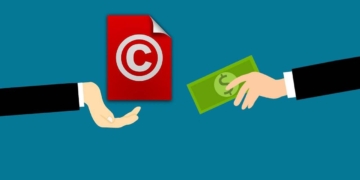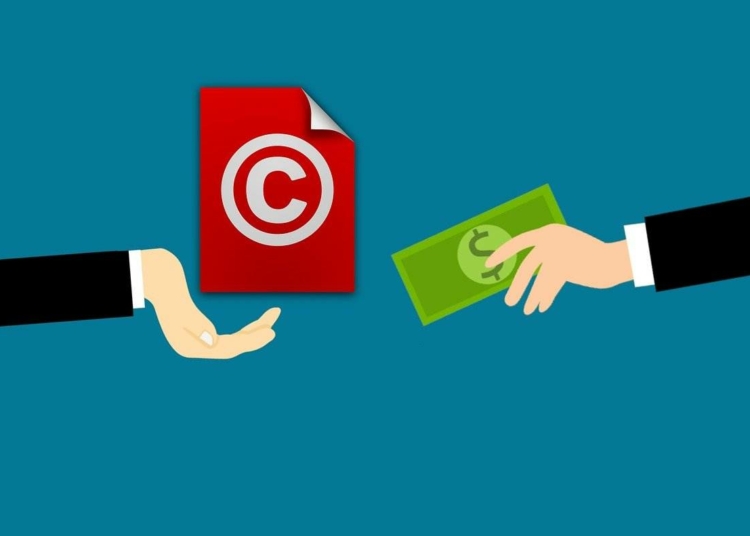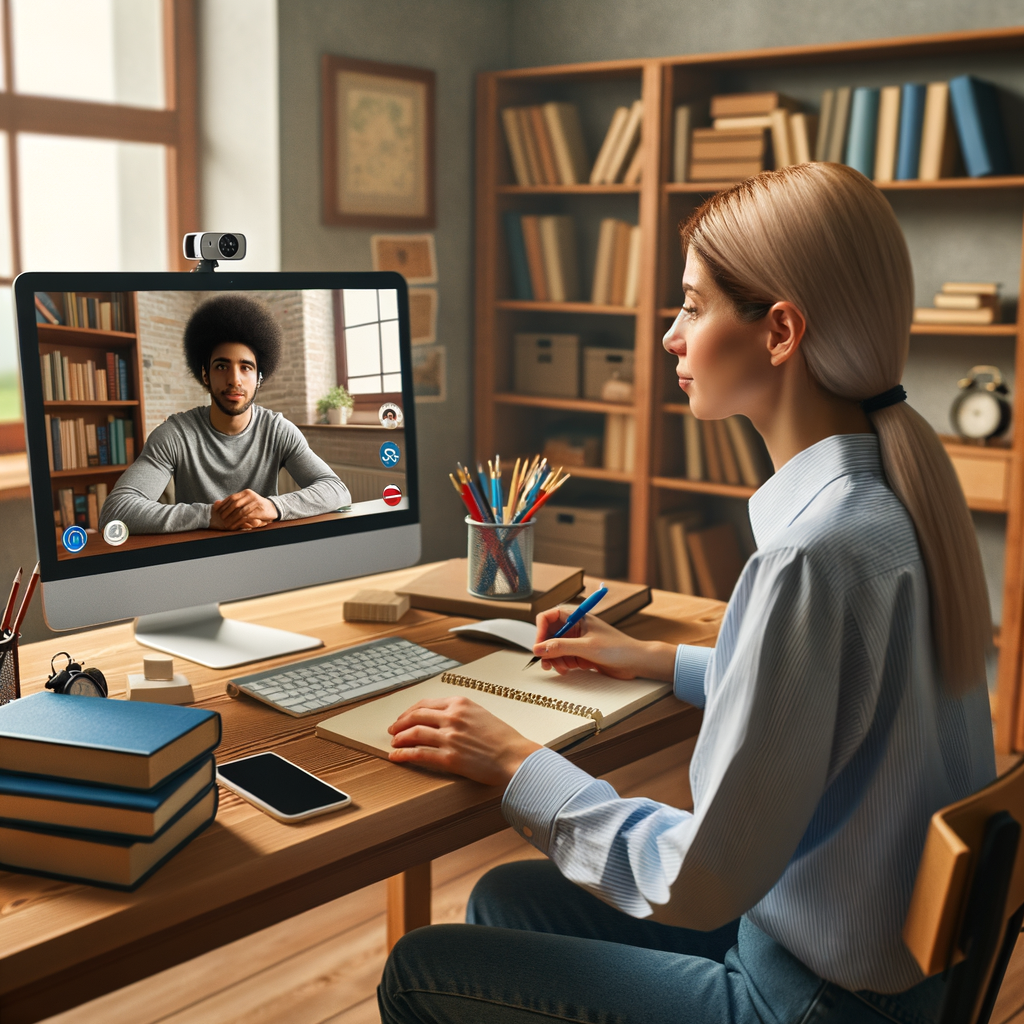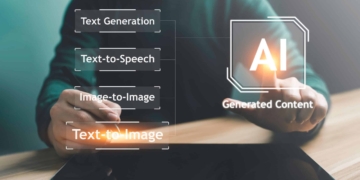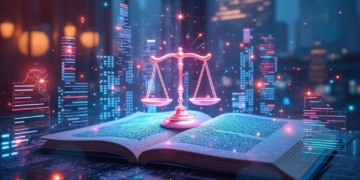In today’s digital world, we often stumble over the term “IT/IP” (Information Technology/Intellectual Property). This term refers to intellectual property law in the context of information technology. But what exactly does that mean? How is it legally defined and protected? And what should you consider to protect your own IP in areas such as film, music or video games?
What is Intellectual Property (IP)?
Intellectual Property (IP), or intellectual property, is a legal term that refers to unique, valuable creations of the human mind. These creations can be diverse and range from inventions and literary works to artistic performances, designs, symbols, names and images used in commerce and trade.
In legal practice, IP is divided into several categories, including copyright, patents, trademarks and trade secrets. Each of these categories protects a specific type of intellectual property and has its own rules and regulations.
Legal protection of an IP in Germany
Legally, IP is protected by various laws and treaties at the national and international level. These laws provide the IP owner with exclusive rights to their creation, usually for a specified period of time. These rights may include the exclusive right to use the creation, copy it, sell it, or otherwise monetize it. They may also include the right to prevent others from using the creation without permission from the rights holder.
However, it is important to note that IP, at least under German law, is rather an abstract concept. It is not a physical property that can be owned, touched or handled in a conventional way. Instead, it is a kind of “ownership right” to an idea or creation that grants the owner certain exclusive rights.
Interestingly, the term “digital property” in the legal sense does not exist in Germany. Unlike physical property, which has clearly defined property rights and laws, digital property is a nebulous and complex area. Digital content such as software, music, movies, and books can be bought and sold, but buyers typically only receive a license to use that content, not ownership of it.
IP protection in practice: the case of computer games
Especially in the world of computer games, where publishing contracts are often at the core of the business, protecting an IP can be both important and complex. This is not only about the protection of specific individual works, but also about the right to offer expansions, DLCs (downloadable content), merchandising and the like.
In the fast-paced world of video games, new content and expansions can often make the difference between a successful game and a less successful one. Therefore, it is important that developers and publishers have the opportunity to expand and improve their games with new content and expansions. At the same time, they must ensure that they retain the rights to these enhancements and new content and that they cannot be used or copied by third parties without their consent.
In addition, it also addresses the protection of similar works that are based on the current licensed content but could potentially fall outside the scope of protection under copyright law without a contractual basis. This may be the case, for example, when a developer creates a new game based on an existing game that uses similar characters, stories, or game mechanics. In such cases, it can be difficult to draw the line between permitted inspiration and unauthorized copying.
In addition, it may also be a question of who has the right to create and sell merchandising items such as T-shirts, posters or toys based on the game. These articles can be an important source of revenue and help to strengthen and spread the brand of the game. Therefore, it is important that developers and publishers also include these aspects in their IP strategy.
Overall, it is clear that protecting IP in the world of computer games is a complex task that requires careful planning and strategy. It is important that developers and publishers know and understand their rights and that they take the necessary steps to protect and use their IP.
IP protection in practice: the case of the music industry
In the music industry, where record deals are often at the core of the business, protecting an IP can be both important and complex. This is not only about the protection of specific individual works, but also about the right to offer remixes, cover versions, merchandising and the like.
In the ever-changing world of music, new versions and interpretations of a song can often make the difference between a hit and a less successful song. Therefore, it is important that artists and record companies have the opportunity to expand and improve their music through new versions and interpretations. At the same time, they must ensure that they retain the rights to these new versions and interpretations and that they cannot be used or copied by third parties without their consent.
In addition, it also addresses the protection of similar works that are based on the current licensed content but could potentially fall outside the scope of protection under copyright law without a contractual basis. This may be the case, for example, when an artist creates a new song based on an existing song that uses similar melodies, lyrics, or rhythms. In such cases, it can be difficult to draw the line between permitted inspiration and unauthorized copying.
In addition, it may also be a question of who has the right to create and sell merchandising items such as T-shirts, posters or records based on the song or artist. These articles can be an important source of revenue and help to strengthen and spread the brand of the artist or song. It is therefore important that artists and record companies also include these aspects in their IP strategy.
IP protection in practice: the case of the film industry
In the film industry, where production and distribution contracts are often at the core of the business, protecting an IP can be both important and complex. This is not only about the protection of specific individual works, but also about the right to offer sequels, spin-offs, merchandising and the like.
In the ever-changing world of film, new interpretations and sequels to a movie can often make the difference between a blockbuster and a less successful film. Therefore, it is important that filmmakers and production companies have the opportunity to expand and improve their films through new interpretations and sequels. At the same time, they must ensure that they retain the rights to these new interpretations and continuations and that they cannot be used or copied by third parties without their consent.
In addition, it also addresses the protection of similar works that are based on the current licensed content but could potentially fall outside the scope of protection under copyright law without a contractual basis. This may be the case, for example, when a filmmaker creates a new film based on an existing film that uses similar characters, stories, or visual elements. In such cases, it can be difficult to draw the line between permitted inspiration and unauthorized copying.
In addition, it may also be a question of who has the right to create and sell merchandise such as T-shirts, posters or action figures based on the movie or characters. These articles can be an important source of revenue and help to strengthen and spread the brand of the film or characters. Therefore, it is important that filmmakers and production companies also include these aspects in their IP strategy.
IP Protection in Practice: Linking the Music, Film and Computer Games Industries
In today’s interconnected world, the lines between different creative industries – music, film and computer games – have become increasingly blurred. Movies become games, games inspire movies, and songs from movies become hits on the music charts. These links show how important the protection of an “IP” is, regardless of how it is judged legally.
In all these industries, it is not only about the protection of specific individual works, but also about the right to offer sequels, spin-offs, remixes, cover versions, merchandising and the like. It also addresses the protection of similar works that are based on the current licensed content but could potentially fall outside the scope of copyright protection without a contractual basis.
A good example of this is the computer game industry, where games are often based on movies and vice versa. In such cases, it is important that both filmmakers and game developers carefully protect their IP rights and ensure that they have the necessary rights to use and monetize their works in this way.
It’s a similar story in the music industry, where songs are often used in movies and games. Here, game developers and film producers as well as musicians and record companies must ensure that they have the necessary rights. Game developers and film producers must own the rights to use the music in their works. At the same time, musicians and record companies need to ensure that they own all the necessary rights to the music in order to license it to game developers or film producers. In both cases, it is important that the use of the music is appropriately remunerated.
All these cases show how important good contracts are. A good contract should not only clearly define the rights and obligations of both parties, but also be flexible enough to allow for future possibilities. It should also include clear clauses that protect creators’ IP rights and ensure that they are paid appropriately for the use of their works.
Overall, it is clear that protecting IP in the networked world of the music, film and computer games industries is a complex and important task. It is critical that creators and businesses know and understand their rights and that they take the necessary steps to protect and use their IP. This is the only way they can ensure that their creations receive the recognition and protection they deserve.
Conclusion
Understanding IT/IP law and protecting your intellectual property are critical factors in ensuring your success in the digital world. It is important to be aware that IP is more than just a concept – it is a valuable asset that must be protected and nurtured. Intellectual property is at the heart of many businesses and creatives; it is the engine that drives innovation and creativity. It is what makes your product or service unique and gives you a competitive advantage. Therefore, it is critical that you understand your IP rights and how to protect them. With the right strategies and resources, you can ensure that your creations get the recognition and protection they deserve. This includes not only knowing the relevant laws and regulations, but also developing a comprehensive IP strategy that covers all aspects of your business. It’s also important to be proactive and regularly review and update your IP rights to ensure they remain relevant and effective. In addition, you should always be vigilant and monitor the market for possible violations of your IP. Finally, it is important to remember that protecting your IP is not just about taking legal action against infringement. It’s also about nurturing and developing your IP, using and monetizing it effectively, and treating it as an integral part of your business model. In a world that is increasingly digital and connected, protecting your intellectual property is more important than ever. With the right understanding and strategies, you can ensure your IP is protected and your business can continue to grow and thrive.
